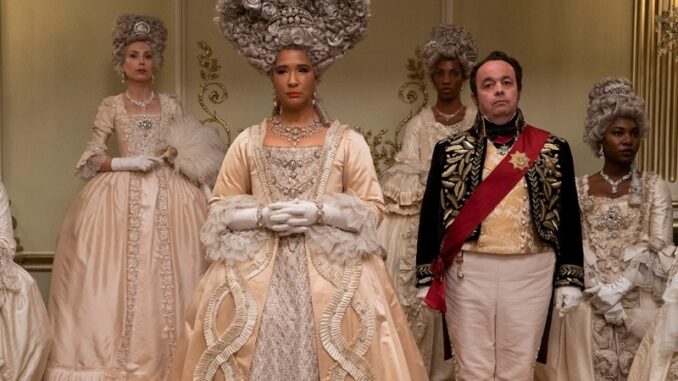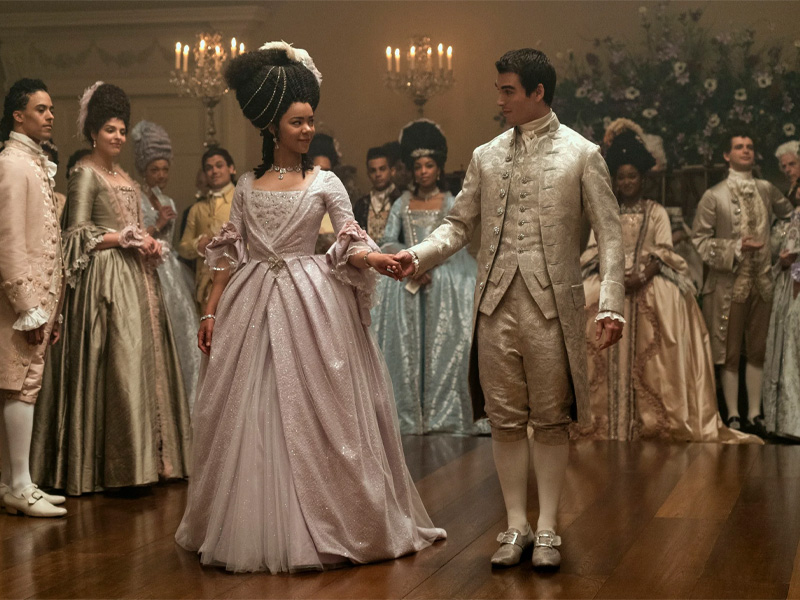
Launched as Britain prepares for the coronation of King Charles III, “Queen Charlotte: A Bridgerton Story” is currently Netflix’s most popular English-language series
In 2020, “Bridgerton” took film forums by storm and became one of Netflix’s most popular series. The prequel “Queen Charlotte: A Bridgerton Story” naturally received a lot of attention from the public from the first days of announcing the project. While some viewers predicted that the story would only deal with a few romantic relationships, the film, in fact, exceeded those expectations by focusing on exploring deeper and darker themes.
This is the story of the young Queen’s marriage to King George III, which is both an excellent love story and an important hierarchical change, creating the upper class society inherited by the characters in “Bridgerton”. Each character’s unique perspective, appropriate solutions to issues such as racism, isolation, coping with loss, etc. have resonated with the audience. It is not surprising that the film debuted at No. 1 in “Top most watched shows on Netflix” from May 1-7 with 148.28 million viewing hours.
So what is it about “Queen Charlotte: A Bridgerton Story” that makes movie “worms” so fascinated?
The allure of untold stories
Regency romances often focus on the journeys of young debutantes in high society as they search for love, leaving out the experiences of their aunts and mothers. The challenges of marriage, loss of a spouse, and the desire to love again are rarely explored. Writer Shonda Rhimes skillfully brings these untold stories to light, speaking to the struggles and desires of an entire generation of women.

These upper-class women were not just conformists, but also bleeding hearts and yearning for love just as much as their younger counterparts. Lady Danbury’s story is a prime example of the challenges of living a solitary life as a woman unattached to a man in that era. And there is another untold story – Brimsley’s love story – that is equally poignant and worthy of attention. Devoted to the Queen, he never had the chance to start a family of his own, becoming a lonely man who always had to dance alone.
The dark side of middle-aged upper-class ladies
In “Bridgerton”, older upper-class women are often portrayed as scheming, gossiping about scandals or throwing parties, but “Queen Charlotte” delves into the lives of these women, beyond the confines of high society. They lie awake at night in their cold, large beds, mourning their loss, yearning for love and warmth. Viscountess Violet, Lady Danbury and Queen Charlotte all share experiences of loss and the challenges they face as women try to keep their lives together.

Just as Queen Charlotte was kept in the dark about the King’s illness, Lady Danbury was kept in the dark about her husband’s finances and affairs. They were treated as little more than “tools” for bearing and caring for their children. Lady Danbury admitted that she would not know how to breathe if it were not the air breathed by Lord Danbury. This detail highlights how little control she had over her life as a woman.
When Women Take Power
When the backstories of these women are finally revealed, it is easy to sympathize with them as they begin to seek control over their lives. While Lady Danbury’s relationship with Lord Ledger may be considered wrong, it is still satisfying to see her experience the feelings that were denied her in her loveless marriage.

Likewise, it was heartening to see the young Queen Charlotte take control the moment she freed her husband from the doctor’s chains. These women finally stood up, took responsibility for themselves, and realized how powerful they could be. The power that Charlotte exuded when she stood up to Princess Augusta was just as strong as when Lady Danbury began her fight to establish a lasting place for herself in high society.